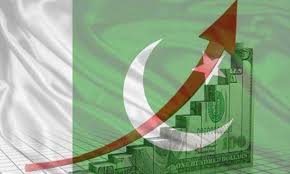Pakistan’s economy is showing clear signs of improvement after facing major challenges just a year ago. According to the Pakistan Economic Survey 2024–25, presented by the Finance Minister, the country has moved from crisis toward stability and growth, with relief reaching businesses, common people, and overseas Pakistanis alike.
The economy’s size has grown to $411 billion. This expansion has led to an almost 10% increase in income per person, which now stands at $1,824. Perhaps the most welcome news for ordinary Pakistanis is the dramatic fall in inflation. It has dropped from over 23% to just 3.5% — the lowest in 60 years. Food inflation, which had hit 48%, has also come down sharply to just 5.3%, bringing much-needed relief in kitchen expenses.
For both businesses and households, energy bills have become more affordable due to reforms in the power sector. These changes have saved billions of rupees and reduced electricity losses. Job creation efforts are also being noticed, especially among youth and women. Over 12,000 women entrepreneurs received support through targeted programs. In addition, Rs 593 billion have been allocated under the Benazir Income Support Programme (BISP) to help nearly 10 million vulnerable families.
In the area of taxation, the government has made it clear that no new taxes have been imposed on the general public. Instead, the focus has shifted to bringing the wealthy into the tax net. Thanks to the launch of a digital tax system, the number of tax filers has doubled within a year, while high-income tax filers have tripled.
Industries are bouncing back, with a 4.8% growth recorded, especially in construction, energy, and small manufacturing units. The services sector, which includes IT, banking, and transportation, is also growing steadily. The banking sector has seen its assets grow by 15.8%, enabling more support for loans and investments.
Agriculture, despite some setbacks due to weather, has also seen positive developments. Poultry, livestock, and vegetable production increased, and credit to farmers rose by 16%. New measures were introduced to stabilize rural markets and ensure fair food prices for both farmers and consumers.
Pakistan’s image in the eyes of the international community has also improved. Global institutions such as the IMF, World Bank, Moody’s, and Fitch have given positive feedback. For the first time, Pakistan received $1.4 billion in climate finance. The stock market reflected this renewed confidence by hitting a record high, rising by 55% over the past year.
Overseas Pakistanis are trusting the country again. Remittances reached a record $31.2 billion — a 31% increase — while inflows through Roshan Digital Accounts crossed the $10 billion mark. A new cross-border payment system, Buna-Raast, has also been launched to make international transactions easier.
The youth are also seeing more opportunities. Over 56,000 young people were trained in IT, hospitality, and technical trades. More than 1,900 startups received support, creating over 185,000 new jobs. Freelancers in Pakistan earned $400 million over the year, showing growth in digital services.
Finally, the government has pushed for a cleaner, greener future. Green Sukuk bonds worth Rs 30 billion were launched and quickly oversubscribed. A national Carbon Market Policy and climate finance strategy were also introduced. Today, 12.5% of Pakistan’s electricity comes from renewable sources.
In summary, the Economic Survey paints a hopeful picture. Prices are down, jobs are increasing, and confidence — both local and global — is rising. As the Finance Minister said, “This is not just recovery — it’s a rebuilding of a stronger, fairer Pakistan.”

